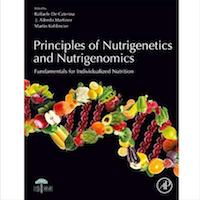Susan J. Sumner, PhD
Professor of Nutrition and Pharmacology
Susan Sumner, PhD is a Professor of Nutrition at UNC Chapel Hill’s Nutrition Research Institute (NRI), and the Director of the Metabolomics and Exposome Laboratory (MEL) at UNC Chapel Hill. Dr. Sumner is working to make personalized medicine and precision nutrition a reality. Using state-of-the-art metabolomics and exposome technologies, Dr. Sumner’s team determines how molecules that are present in our tissues and biological fluids are associated with states of health and wellness. Through this approach, biomarkers are discovered that can lead to new diagnostics for the early detection and diagnosis of disease, to monitor treatment and intervention, and to inform the development of intervention strategies.
The Sumner-Lab uses analytical methods to detect tens of thousands of signals for molecules that are present in biological specimens (such as urine, serum, plasma, feces, sweat, tissues, and cells). Using untargeted metabolomics, signals are detected for metabolites that are derived from endogenous metabolic process, such as neurotransmitters, hormones and steroids, sugars, amino acids, purines and pyrimidines, lipids, fatty acids, and vitamins and essential nutrients. Signals are also detected for metabolites derived from a wide range of exposures, including metabolites derived from ingestion of foods, intake of medications or drugs of abuse, and environmentally relevant
Dr. Sumner’s research activities in Personalized Medicine and Precision Nutrition span several domain areas of Maternal and Child Health, Diabetes and Kidney Disease, Toxicology, Cancer, Microbiome, and Addiction. In 2019, she received a grant from the National Heart Lung and Blood Institute (NHLBI) to discover biomarkers and mechanisms associated with Cardiovascular Disease. She has served as the PI of a grant funded through the National Institute of General Medical Sciences (NIGMS) to use metabolomics to reveal noninvasive markers of drug-induced liver injury, and as PI of the NIH Common Fund Eastern Regional Comprehensive Metabolomics Resource Core (ERCMRC). She currently directs the Metabolomics Core for the UNC Chapel Hill Nutrition Obesity Resource Center (NORC, funded by the National Institute of Diabetes and Digestive and Kidney Diseases, NIDDK), and an Exposome Core for the Children’s Health Exposure Analysis Resource (CHEAR) program (funded by the National Institutes of Environmental Health Sciences, NIEHS).
In August of 2019, Dr. Sumner received a grant to develop new tools and conduct untargeted analysis for the NIEHS-funded Human Health Exposure Analysis Resource (HHEAR) Program. Under this grant, untargeted analysis will be used to study the complex interactions between environmental exposures throughout the lifespan and human health outcomes.
Dr. Sumner earned a B.S. and Ph.D. in the Department of Chemistry at North Carolina State University, and conducted postdoctoral research at NHLBI.

Emily Brasseur
Research Technician, Sumner Lab
Emily graduated from Catawba College with a Bachelors in Biochemistry and a minor in History in 2023. She is excited to be with the Sumner Lab and looks forward to learning everything that she can. She is a Michigan native that misses the snow but does not miss the cold. In her down time, Emily loves to read, play games, and crochet many different things.

Rachel Coble
Assistant Laboratory Manager, Sumner Lab
Rachel Joined the UNC Chapel Hill NRI in August 2020 as a Research Technician in the Sumner Lab. As a local of Rowan County, specifically China Grove, she graduated from Catawba College in 2020 with a B.S. in Biochemistry. She has always wanted to have some kind of involvement at the NCRC ever since she saw the campus being built as a little girl. Now, her dream has come true. She plans to further her involvement in metabolomics during the admirable times here at the NRI.

Isabella Falcone
Student Research Assistant, Sumner Lab
Isabella joined the Sumner Lab as a student intern in 2023. She is an undergraduate student pursuing a BSPH in the Nutrition program through the UNC Gillings School of Global Public Health, as well as a minor in Chemistry. As Isabella aims to attend medical school following her undergraduate career, she is eager to learn from Dr. Sumner and her team. In Isabella’s free time she enjoys running, baking, and crafting

Susan McRitchie, MA, MS
Program Manager, Sumner Lab
Susan McRitchie, MA/MS has over 10 years of experience conducting biostatistics in the field of metabolomics, and has over 15 years of experience using biostatistics in clinical and epidemiology investigations. She is the lead biostatistician and program manager for the NIH Common Fund Metabolomics and Clinical Assay Center (PI, Susan Sumner) for the Nutrition for Precision Health study, for the NIEHS Human Health Exposure Analysis Resource program (MPI, Sumner/Du/Fennell), and for the Metabolomics and Exposome Laboratory at the UNC Chapel Hill Nutrition Research Institute (Director, Sumner). In these roles, she participates in working groups of the NIH consortium involving data management, data quality, and omics analysis, and leads data analysis. She has trained over 20 students, postdoctoral fellows, early career and senior faculty to conduct statistical and multivariate analysis in metabolomics investigations. Susan McRitchie earned a MA in mathematics from UCLA and a MS in Biostatistics from UNC Chapel Hill.

Sabrina Molina
Assistant Laboratory Manager, Sumner Lab
Sabrina graduated from UNC Charlotte with a degree in biology, working in a bioinformatics lab during her time there. She began as a student intern in the Sumner lab and is now working as the Assistant Laboratory Manager. She is very excited to continue working with all the amazing people at the NRI. In her spare time, Sabrina enjoys cooking, kayaking, fishing, and dirt biking.

Wimal Pathmasiri, PhD
Assistant Professor of Nutrition
Wimal Pathmasiri, PhD is an Assistant Professor at the University of North Carolina at Chapel Hill’s Nutrition Research Institute (NRI). An overarching goal of Dr. Pathmasiri’ s research includes understanding the links between exposures (diet, constituents in natural projects, environmental chemicals, drugs), microbial metabolism, and human health. He was worked with the Sumner-Lab for over 12 years, as the director of a technology core for the NIH Common Fund Eastern Regional Comprehensive Metabolomics Resource Core (ERCMRC), and as a co-investigator in the North Carolina Human Health Exposure Analysis Resource Untargeted Analysis Laboratory (NC HHEAR UAL). Learn more.

Blake Rushing, PhD
Assistant Professor of Nutrition
Blake Rushing, PhD, is an assistant professor of nutrition at the University of North Carolina at Chapel Hill’s Nutrition Research Institute (NRI). Dr. Rushing’s is trained in pharmacology and toxicology, and has experience using liquid chromatography-mass spectrometry, nuclear magnetic resonance, in vitro model systems, and various biochemical assays to study the interactions between small molecule toxins/drugs with macromolecular targets such as proteins and DNA. He is well versed in using analytical instrumentation to study metabolic products of exogenous small molecule agents and their biological effects. Learn more.

Braden Yorke
Student Research Assistant, Sumner
Braden Yorke is an undergraduate student at the University of North Carolina at Chapel Hill, pursuing a degree in Nutrition Science and Research. Braden is an intern in Dr. Sumner’s lab at the UNC Nutrition Research Institute where he hopes to explore the field and learn as much as possible.
BSPH Students

Heidi Cao
BSPH Candidate

Mansi Choudhari
BSPH Candidate

Grace Huiyu Fu
BSPH Candidate
The North Carolina Human Health Exposure Analysis Resource Hub (NC HHEAR Hub)
Metabolomics and Exposome Laboratory (MEL) for the following NIH Centers
Nutritional Pharmacology/Toxicology
Choline and Related Metabolites in Nutrition Research
Metabolomics: Using In Vitro Models to Reveal Mechanisms of Cellular Response
700 MHz NMR Spectroscopy Services on the North Carolina Research Campus
Quantitative Targeted Analysis of Host Metabolism - Biocrates
Recent Grants Supported by the Metabolomics and Exposome Laboratory (MEL)
R01HL143885 (Sumner, MPI, UNC-CH): 2019–2023
NHLBI
Leveraging multi-omics approaches to examine metabolic challenges of obesity in relation to cardiovascular diseases.
1U01CA235507 (Du, PI, UNC-Charlotte): 2018–2022
NCI
Cross-Platform and Graphical Software Tool for Adaptive LC/MS and GC/MS Metabolomics Data Preprocessing
1R37CA226969-01 (Bae-Jump, PI, UNC-CH): 2018–2023
NCI
Obesity-driven Metabolic and Molecular Biomarkers of Metformin Response in Endometrial Cancer
1R21CA235029-01 (Smith-Ryan & Bae-Jump, MPI, UNC Chapel Hill): 2019–2020
NCI
Interval Exercise Training as a Therapy for Endometrial Cancer
1U01OH011300-01A1 (Nolan, PI, NYUSOM): 2017– 2023
NIOSH
Metabolomics of World Trade Center-Lung Injury
1R01DK115380-01 (Zeisel, PI, UNC Chapel Hill): 2017- 2021
NIDDK
Developing a Biomarker Panel to Assess Choline Nutritional Status
U01ES027254 (Sumner, MPI, UNC Chapel Hill): 2016–2021
National Institute of Environmental Health Sciences
Early-life END exposure and the impact on neurobehavioral, cardiovascular, and biochemical mechanisms.
5UG3OD023275 (Karagas, PI, Dartmouth College): 2016-2023
National Institute of Environmental Health Sciences
Environmental Influences of Child Health Outcomes (ECHO) Pediatrics Cohort
New Hampshire Birth Cohort
5UG3OD023305 (Trasande, PI, NYU School of Medicine): 2016-2023
National Institute of Environmental Health Sciences
Environmental Influences of Child Health Outcomes (ECHO) Pediatrics Cohort
NYU Pediatric Obesity, Metabolism and Kidney Cohort Center
R01DK110077 (Smoyer, PI, Nationwide Children’s Hospital) 2017-2022
NIDDK
Integrating Proteomics and Metabolomics to Understand Pediatric Glomerular Disease
1R21HD087878-01A1 (Harville, PI, Tulane): 2017-2019
NICHD
Preterm birth, pre-eclampsia, and the exposome
Li Uses Metabolomics to Study Diabetes
Yuanyuan Li, PhD, a member of the Sumner Lab at the UNC Nutrition Research Institute (NRI), has been published in Archives of Toxicology with her manuscript titled “Exposure to inorganic arsenic and its methylated metabolites alters metabolomics profiles in INS-1...
Important NIH Award for NRI and Partners
December 12, 2019 – Agatha Christie once said, “the first time you do a thing is always exciting.” Well, we’ve had a lot of excitement at the Nutrition Research Institute recently! Two members of the Smith Lab are celebrating becoming first-time first-authors of scientific journal publications.
Kohlmeier Co-edits Nutrigenetics and Nutrigenomics Textbook
August 20, 2019 – Principles of Nutrigenetics and Nutrigenomics: Fundamentals for Individualized Nutrition is the most comprehensive foundational text on the complex topics of nutrigenetics and nutrigenomics. Edited by three leaders in the field with contributions from the most well-cited researchers conducting groundbreaking research in the field, the book covers how the genetic makeup influences the response to foods and nutrients and how nutrients affect gene expression.
Chinese herb may be a natural method of treating diabetes
May 31, 2019 – The traditional Chinese herb Lycii Cortex (LyC), with its powerful compound kukoamine B, could be an effective nutraceutical choice for lowering blood glucose when used alone or in combination with low doses of first-line diabetes medications.
NIH Grant To Study Gene Mutation Associated with Rare Disease
March 22, 2019 – Sergey A. Krupenko, PhD, professor of nutrition at the UNC Nutrition Research Institute (NRI), has been awarded a $2.4 million grant from the National Institutes of Health for his research project, “Regulation of Mitochondrial Function by Folate...
December Faculty Focus: Susan Sumner, PhD
December 15, 2018 – Through the ages, science has often been in the company of poetry. They came together recently when Susan Sumner, PhD, described how she got her start in Biomarker Discovery using spectroscopic methods as an undergraduate at North Carolina State University (NCSU): “I found it exciting to envision molecules dancing in multidimensional space in response to applied physical factors such as magnets, radio frequency pulses, or electric fields.”
New Grant to Study Nutrition and Chemotherapeutic Response
May 30, 2018 – Delisha Stewart, PhD, Assistant Professor of Nutrition at the UNC Nutrition Research Institute, has been awarded a two year grant to study the impact of diet on chemotherapeutic treatment resistance in obesity-driven, aggressive breast cancer. This award builds from the research Dr. Stewart has conducted over the last ten years.
NRI Included in UNC Creativity Hubs Inaugural Award to Study Obesity
May 14, 2018 – Five NRI faculty members are among a team of UNC researchers receiving an award to study one of the world’s most pressing issues: the obesity epidemic. The cross-disciplinary team, known as the Heterogeneity in Obesity Creativity Hub, will leverage the strengths of Carolina’s schools of medical and health sciences, affiliated research centers and institutes, and prowess in big data management to take a novel approach to assess the underlying causes of obesity to unlock new, targeted ways to treat the disease.
2024 Publications
2023 Publications
2022 Publications
2022
Commonalities in Metabolic Reprogramming between Tobacco Use and Oral Cancer
Alterations in Microbial-Associated Fecal Metabolites in Relation to Arsenic Exposure Among Infants
Multimodal Diagnostic Approaches to Advance Precision Medicine in Sarcopenia and Frailty
Sex-Specific Metabolic Effects of Dietary Folate Withdrawal in Wild-Type and Aldh1l1 Knockout Mice
Dietary Supplements for Athletic Performance in Women: Beta-Alanine, Caffeine, and Nitrate
Multi-Omics Analysis of Multiple Glucose-Sensing Receptor Systems in Yeast.
2021 Publications
2021
Emerging technologies and their impact on regulatory science
Bridging the Gap Between Analytical and Microbial Sciences in Microbiome Research
Associations between the gut microbiome and metabolome in early life
Multi-omics analysis of glucose-mediated signaling by a moonlighting Gβ protein Asc1/RACK1
Metabolic Response of Triple-Negative Breast Cancer to Folate Restriction
Metabolomics reveals biomarkers of opioid use disorder
Existing antiviral options against SARS-CoV-2 replication in COVID-19 patients
2020 Publications
2019 Publications
Predicting and Defining Steroid Resistance in Pediatric Nephrotic Syndrome Using Plasma Proteomics.
Cytosolic 10-formyltetrahydrofolate dehydrogenase regulates glycine metabolism in mouse liver.
Deleterious mutations in ALDH1L2 suggest a novel cause for neuro-ichthyotic syndrome.
Health-related quality of life in glomerular disease.
Human PAH is characterized by a pattern of lipid-related insulin resistance.
Metabolomics for Biomarker Discovery and to Derive Genetics Links to Disease.
2018 Publications
Antibiotic-induced acceleration of type 1 diabetes alters maturation of innate intestinal immunity.
Correlated metabolomic, genomic, and histologic phenotypes in histologically normal breast tissue.
Using Metabolomics to Investigate Biomarkers of Drug Addiction.
Human microbiota, blood group antigens, and disease.
Effect of endotoxin and alum adjuvant vaccine on peanut allergy.
2017 Publications
2016 Publications
Antibiotic-mediated gut microbiome perturbation accelerates development of type 1 diabetes in mice.
Metabolomics enables precision medicine: “A White Paper, Community Perspective”.
Impact of a western diet on the ovarian and serum metabolome.
Blood type biochemistry and human disease.
The Importance of the Biological Impact of Exposure to the Concept of the Exposome.









